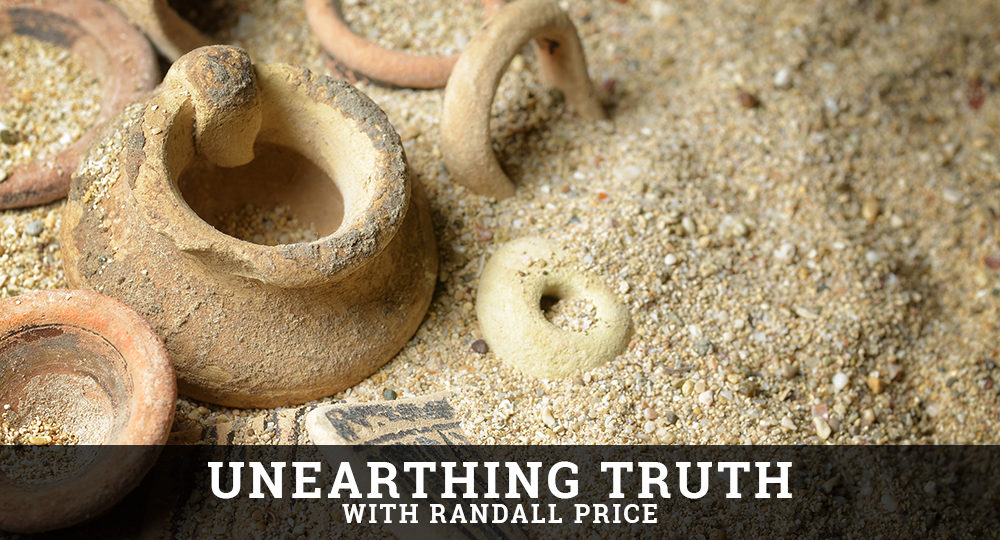What’s in a Name?
When Moses encountered God for the first time, he asked Him, “When I come to the children of Israel and say to them, ‘The God of your fathers has sent me to you,’ and they say to me, ‘What is His name?’ what shall I say to them?” (Ex. 3:13).
God replied, “I AM WHO I AM” (v. 14), adding, “This is My name forever, and this is My memorial to all generations” (v. 15). God revealed to Moses the name YHWH, tied to His historical, covenant relationship with the patriarchs.
Some people have been confused by the later statement in Exodus 6:3: “I appeared to Abraham, to Isaac, and to Jacob, as God Almighty, but by My name LORD [YHWH] I was not known to them.” This text does not mean God was not called YHWH in the time of the patriarchs (the term appears more than 100 times between Genesis 12—50) but, rather, that Israel as a nation had not yet experienced who YHWH was. That knowledge would be revealed during the Israelites’ deliverance from Egypt.
Understanding YHWH as an active participant in Israel’s history who demonstrated who He was in a personal way lies behind the meaning of the name itself. That is why God told Moses, “Thus you shall say to the children of Israel, ‘I AM has sent me to you’” (Ex. 3:14). “I AM” probably comes from the Hebrew verb haya (to be, exist), which connotes something about the doer, especially as demonstrated in an unfolding event. An example is the title “the LORD [YHWH] who made heaven and earth” (Ps. 134:3; cf. 115:15; 121:2; 124:8).
In the Exodus, YHWH is the Redeemer who saves Israel from its enemies (Ex. 15:1–3) and is, therefore, uniquely Israel’s God: “Who is like You, O [YHWH], among the gods?” (v. 11).
YHWH is the King of Israel (Isa. 44:6). He is not simply the one and only God; He is Israel’s God. In the New Testament, the Messiah is identified with YHWH on the basis of His act as Redeemer (Rom. 10:9, 13) and is depicted, especially in His Second Advent, by a “new exodus” motif. (See Romans 11:26–27.)
Early Judaism considered the name too sacred to pronounce (cf. Jud. 13:18). Therefore, the Jewish scribes at Qumran (ca. 100 BC) wrote YHWH in an old script used in first-Temple times. Later, in the 10th century AD, the Masoretes placed the vowels for the Hebrew word Adonai (my Lord) or sometimes Elohim (God) under the four consonants to prevent pronouncing them. Most Orthodox Jews simply say Ha-Shem (the Name).
Unfortunately, early Christian scholars misunderstood the scribal substitution and rendered the term as “Jehovah,” a Germanic pronunciation of the Latinized transliteration of YHWH. Since this form never existed, modern English translations simply use the word LORD to distinguish the tetragrammaton (four letters) from common uses of lord.
Liberal scholars often argue that YHWH was originally an Edomite or Midianite god because of His localized actions (Dt. 33:2; Jud. 5:4–5; Hab. 3:3) and because similar letters designated the Midianite deity. They contend that, during Israel’s 40 years in the wilderness, the new religion fashioned was influenced by local pagan beliefs because Moses’ father-in-law, Jethro, was a Midianite priest (Ex. 3:1). However, the Bible clearly teaches that YHWH is unique and divinely revealed—not borrowed from a pagan source.
Although the earliest mention (840 BC) of YHWH is from a pagan inscription (Moabite Stone or Mesha Stele), YHWH is depicted as uniquely the God of Israel. There it is recorded that King Mesha defeated the Israelites in a battle and “took the vessels of YHWH to Kemosh,” the chief Moabite god. Thus separate deities existed for Israel and Moab.
Therefore, when God revealed Himself to Israel as YHWH, it was so that His unique (memorial) name might be understood in a covenant relationship with His Chosen People and that through them, the one supreme and sovereign Savior might be known to the nations (Ezek. 36:23).









The Hebrew is not YHWH but YHVH. In the Biblical Hebrew there is no W in the alphabet but it is the V. Dr. Price is generally reliable but in this instance it is inaccurate of him to say early Christian scholars erred in calling Him Jehovah. It would be Yehovah in Hebrew and indeed Jehovah in English. Naturally it’s too late for him to retract the discrepancy and correct it.
Hello there
This is so timely
I have been reading that Hashem means the Name
Elohim – pluralality of God
Psalm 138 says he has magnified the word above all of his name
John 1:1 mentions Dvar Hashem word of the name was with god and is God
Psalm 29 speakers of the name being sound / voice? Rushing wind – Dividing fire ( flames of fire divided on each of the people in upper room of Holy Ghost) Pentecost
So do we use Adonai, Elohim, God, the name ( Hashem) ?? Does it matter ?
Or Abba, Papa ?? To give Him due reverence
I had assumed Moses inserted the YHWH’s name as he recorded the history of the patriarchs, but they had not actually known God by that name until YHWH revealed His name to Moses.